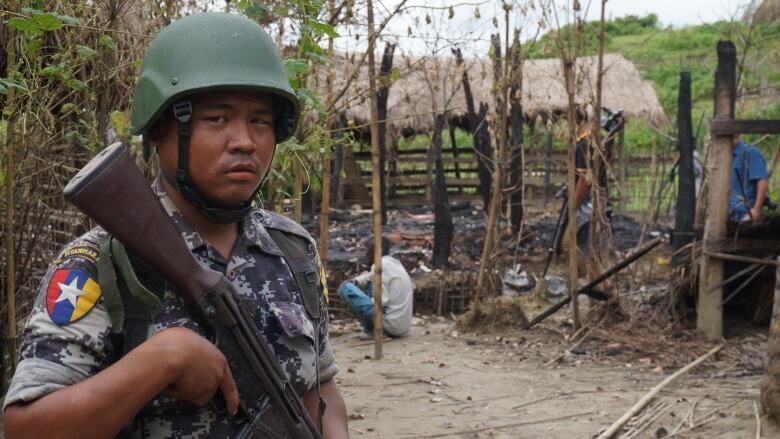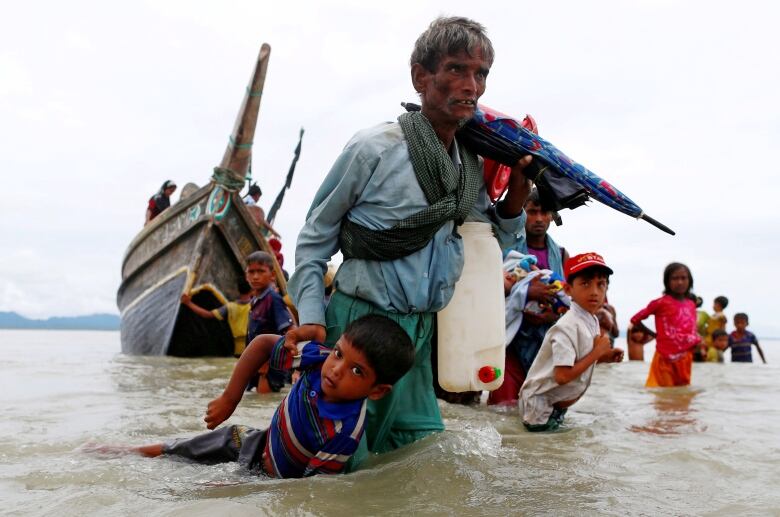UN investigators gathering testimony on Rohingya rights violations
Myanmar denies accusations it's trying to drive out Muslim minority, saying it is only targeting militants

UN investigators have startedcollecting testimony from fleeing Rohingya Muslims pointing tohuman rights violations by Myanmar's military and securityforces, the head of the fact-finding mission said on Tuesday.
Marzuki Darusman said his UN team was still trying to getMyanmar's permission to enter the country, but was gatheringevidence from refugees and medics in the border town of Cox'sBazar in neighbouring Bangladesh.
- Myanmar's Suu Kyi condemns 'all human rights violations' in Rohingya crisis
- Aung San Suu Kyi accused of spouting 'falsehoods' in speech about Rohingya crisis
Darusman's team started its work in August, the month thatattacks by Rohingya Muslim insurgents in Myanmar triggered amilitary response that has forced more than 421,000 Rohingyainto Bangladesh in the past month.
Myanmar has denied rights groups' accusations that it istrying to drive the minority community out of Rakhine state, saying it is only targeting militants.
"Initial information has been given that some of the allegations that have been spelled out in the resolution are reflected in the initial findings of the team in their interviews," Darusman told reporters.
"What they have come up with reflects in general the reporting of the international media so far on what is happening there."
Allegations of ethnic cleansing
The UN Human Rights Council's resolution to set up thefact-finding mission mandated Darusman's team to look into "alleged recent human rights violations by military and security forces and abuses in Myanmar, in particular in Rakhine State."
The international media has widely reported on the plight of the Rohingya and their accounts of persecution by Myanmar's military and security forces, which the UN human rights chief has referred to as a "textbook example" of ethnic cleansing.

Initial findings would be released within about 10 days, Darusman said. His team was supposed to deliver its full report in March, but Darusman told the Geneva-based Council that timeframe was "utterly insufficient" and asked for a six-month extension.
Myanmar's ambassador Htin Lynn told the Council that Myanmar was making efforts to restore peace, law and order.
"Proportionate security measures targeted only on terrorists are being taken to safeguard our state security, and to restore law and order," he said.
"We continue to believe that instituting such a mission is not a helpful course of action in solving the already intricate Rakhine issue with daunting challenges."
A troubled history
About a million Rohingyaare believed to have lived in Myanmarbefore the latest wave of violence, mostly in Rakhine state.
Their history in the area can be tracedback more than 500 years, according to the New York-based Council on Foreign Relations. Despite that, many in themajority Buddhist country view the Rohingyaasillegal immigrants from Bangladesh.
A law passed in 1982 byMyanmar'sformer military government"effectively denies" Rohingyacitizenship,Human Rights Watch says.
ChrisLewa, the founder of anadvocacy group calledtheArakanProject, hasreported a pattern of increasing human rights abuses against the Rohingya in recent years.
The current exodus isn't the first time the Rohingyahave had to flee in large numbers. Hundreds of thousandsleft in 1978 and again in the early 1990s,to avoid military and government oppression, thoughpolicies were later put in place that allowed many to return.
Communal violence in 2012, as the country was transitioning from a half-century ofdictatorship to democracy, sent another 100,000 fleeing by boat.
Some 120,000 remain trapped in camps under apartheid-like conditions outside Rakhine's capital, Sittwe.
With files from CBC News and The Associated Press













_(720p).jpg)


 OFFICIAL HD MUSIC VIDEO.jpg)
.jpg)



























































































